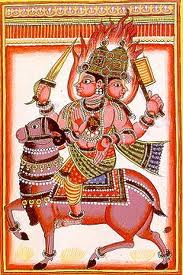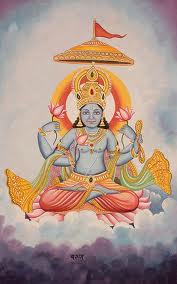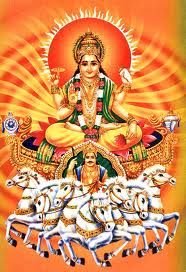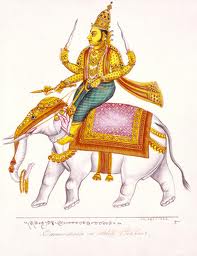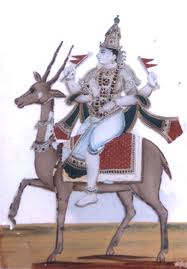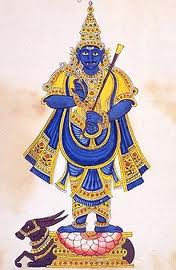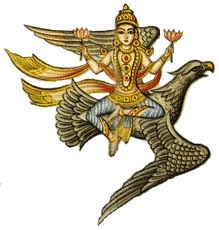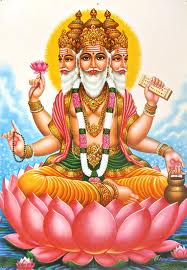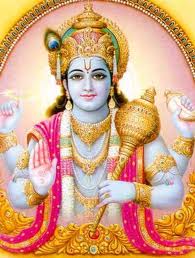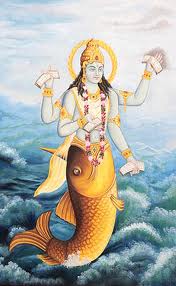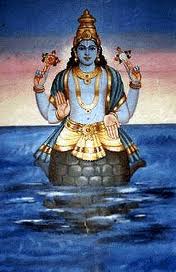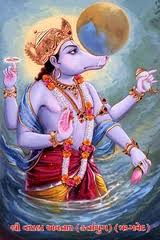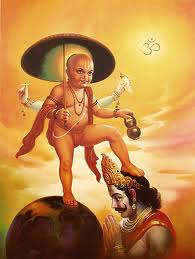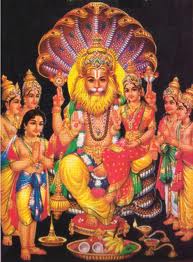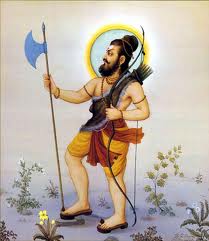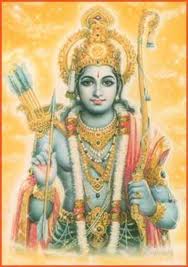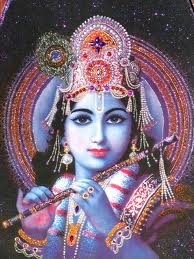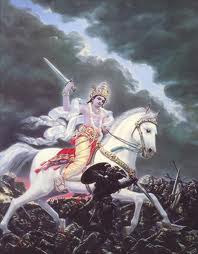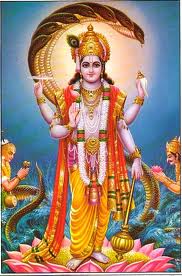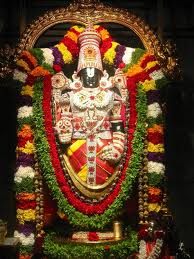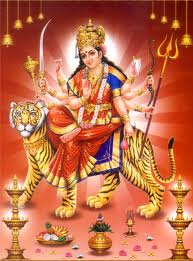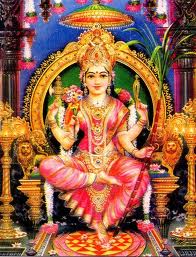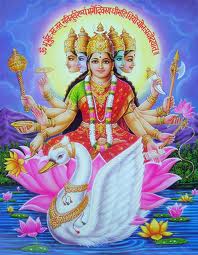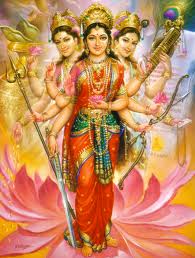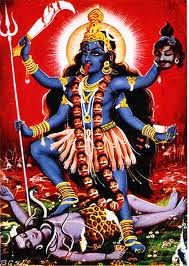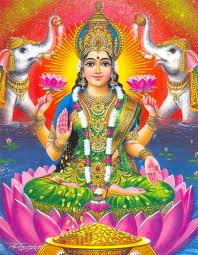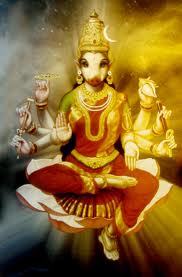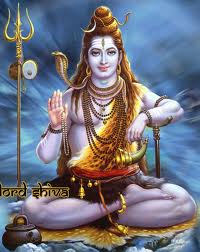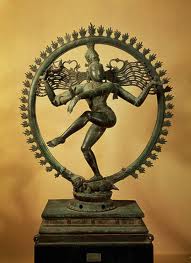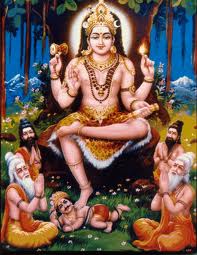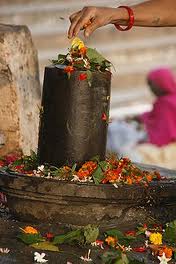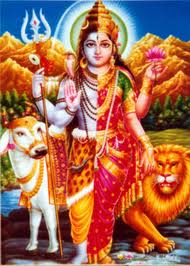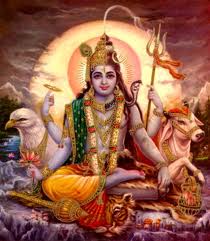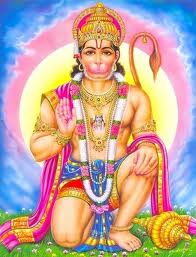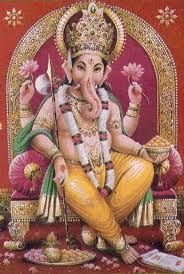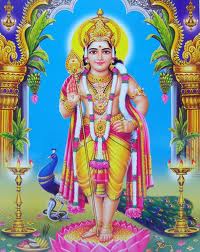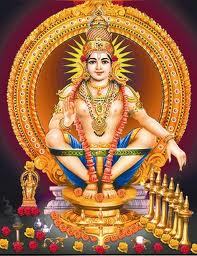Hindu Gods
|
INTRODUCTION The gods of Hinduism have successfully created enough confusion in the minds of the followers of alien faiths who have chanced to come across them. Even more successfully have they created enough conflicts among the Hindus themselves! It is ignorance that causes confusion and creates conflicts. Hence, discovering this ignorance and dispelling it should automatically lead to clearing the confusions and resolving the conflicts. There is the story of the atheist who vehemently preached throughout his life that neither God nor soul existed, praying at the last moment of his life thus: '0 God, if there is a God, save my soul, if there is one!' This story may sound funny, but, nevertheless, it poignantly reveals man's psychological necessity for God. Belief in God has sustained mankind for millennia. Faith in and adoration of gods and goddesses has fulfilled a practical necessity in the lives of millions of the ordinary Hindus. It is naive to suggest that the Hindus did not or could not conceive of one God, the Supreme. Philosophical thinking in Hinduism has risen to sublime heights in the Upanisads, the Bhagavad Gita and the Brahma Sutras. However, these great works, and the thinkers following in their footsteps, recognized the limitation of the average human mind and its emotional needs. That is why they wisely provided for various kinds of Up as an as (meditations and modes of worship) to suit the different tastes and needs of the votaries.
|
||||||||||||||||||||||||||||||||||||||||||||||||||||||||||||||||||||||||||||||||||||||||||||||||||||||||||||||||||||||||||||||||||||||||||||||||||||||||||||||||||||||||||||||||||||||||||||||||||||||||||||||||||||||||||||||||||||||||||||||||||||||||||||||||||||||||||||||||||||||||||||||||||||||||||||||||||||||||||||||||||||||||||||||||||||||||||||||||||||||||||||||||||||||||||||||
Before proceeding further, it is worthwhile, even necessary, to know something about the concept of God in Hinduism. It is true that Hinduism does not depend upon a single scripture as the other religions of the world do. However the entire body of its philosophical literature accepts the Upanisads and the Bhagavad Gita as authoritative and does not go against them. Hence any concept of God based on these books is welcome to practically all sections of Hinduism.
While deriving the concept of God, it is but natural for man to start
from the world in which he lives and moves. So, the God of Hinduism,
when looked at from this angle, is the Creator. However, He creates the
entire
world, not out of nothing which is illogical, but out of Himself. After
creation, He sustains it with His power, rules over it like an
all-powerful emperor, meting out justice, as reward and punishment, in
accordance with the deeds of the individual beings. At the end of one
cycle of creation-Hinduism advocates the cyclic theory of creation-He
withdraws the entire world order into Himself.
The Hindu scriptures wax eloquent while describing the qualities of God.
He is all-knowing and all-powerful. He is the very personification of
justice, love and beauty. In fact, He is the personification of all the
blessed qualities that man can ever conceive of. He is ever ready to
shower His grace, mercy and blessings on His creation. Really speaking,
the very purpose of His creating this world is to shower His blessings
on the creatures, to lead them gradually from less perfect states to
more perfect ones. He is easily pleased by the prayers and supplication
of His devotees. However His response to these prayers is guided by the
principle, that it should not be in conflict with the cosmic law
concerning the general welfare of the world, and the law of Karma
concerning the welfare of the particular individual.
The Hindu concept of God has two special features. Depending upon the
needs and tastes of his votaries" He can appear to them in any form they
like to worship, and respond through that form. He can also incarnate
Himself amongst human beings in order to lead them to His own kingdom.
And this incarnating is a continuing process, taking place whenever and
wherever He deems it necessary.
Then, there is the other aspect of God, as the Absolute. 'Brahman' is
the name usually given to this aspect. It means what is infinitely big.
It is the Infinite itself. It transcends everything that is created.
Yet, it is immanent too, immanent in all that is created. It is so
unlike anything we know that it defies all description. It has been
stated that the only way by which it can be predicated, is the negative
way: 'Not this! Not this!'
In its own essential nature, it is defined as 'Sat-cit-ananda,'
'Existence-consciousness-bliss'. It is the basis or substratum of all
existence, consciousness and joy.
Metaphysics points towards Brahman, the Absolute. A thinking mind and a
feeling heart-that is what a human being is-can accept only God, the
Creator and the Ruler (Isvara), since the world is very much a reality
to it. The correlation between the Brahman and this Isvara, though
instinctively felt by the feeling heart, will ever remain an enigma to
the thinking mind! Could this be due to the mysterious power of Maya?
A GENERAL NOTE ON THE GODS OF HINDUISM
The polytheism of the Hindus, though apparent, has remained a mysterious
riddle. It will continue to remain so until it is viewed in the right
perspective.
There are three aspects to this polytheism. The three main cult
deities-the Trinity consisting of Brahma, Vishnu and Siva along with
their consorts, form the first aspect. Here all the cult deities are
considered to be different facets of God, the Supreme (Isvara). The
minor deities like Ganesa and Kumara, form the second aspect. Though
these deities also are sometimes described as the facets of God the
Supreme, their position is usually inferior to that of the Trinity. They
represent limited manifestations of the Supreme God. The Lokapalas
(protectors of the world), also called as Dikpalas (protectors of the
cardinal direc?tions) like Indra, Varuna).and Agni and others, comprise
the third aspect. They are actually offices of power in the cosmic
scheme of creation and human beings who have acquired extraordinary
religious merit necessary for getting those places, will occupy them in
each cycle of creation. Then there are many number of village deities
and demigods who can be regarded either as very limited manifestations
of the Supreme God or as forces of nature deified or as human beings who
by virtue of some special merit and power are elevated to godhood in
course of time, after their death.
The statement of Lord Sri Krishna in the Bhagavad Gita (4.11; 7.21) that
He, the Supreme Lord, will respond to the devotees in whichever form
they worship Him and in whichever way they approach Him, can form the
philosophical basis, typical to Hinduism, for this polytheism. So God
can be all things to all men, and human beings can supplicate Him for
anything-from the sublime to the ridiculous!
However, the Vedic gods form a class by themselves and so need separate
treatment.
THE VEDIC GODS
The Rig veda Samhita forms the basic scripture of Hinduism and tradition
accords it the highest place. This great book is full of hymns, Suktas
as they are called, which attain supreme heights of poetical beauty and
philosophical acumen, a rare combination indeed!
A major part of this work is devoted to prayers to gods like Indra, Agni,
Varuna and others. These Vedic gods are usually enumerated as thirty
three: eight Vasus, eleven Rudras, twelve Adityas, Indra and Prajapati.
These gods are assigned to the three regions of the earth (PrthvI), the
heavens (Dyaus) and the intermediary space, (Antariksa). Apart from
these gods, we also find many inanimate objects like grinding stone,
qualities like faith, emotions like anger, aspects of nature like dawn,
deified and described. There are several female deities also, though
they are not as prominent as the male deities.
Who are these gods? Are they different aspects of the One Supreme God?
Or, are they different deities competing and conflicting with one
another like the Greek gods? Or, are they just animals and totems
masquerading as gods?! Since the main purpose of this small book is to
acquaint the average reader with a general idea of gods and goddesses in
Hinduism, we cannot embark upon a research into this aspect of the
question. Suffice it to say that the famous statement in the RgVeda
itself viz., 'ekam sat viprah bahudha vadanti,' 'Truth is One; sages
call It by various names' (1.164.46) sets the tone for the philosophy of
the Vedas which is amplified later on by the Upanisads. Hence, though
these deities appear to be different and independent, they are really
facets of the same Brahman, the Supreme God.
Let us now consider briefly the more important of these deities. For the
sake of convenience they are arranged and dealt with in alphabetical
order:
Adityas: The Adityas represent a group of deities. They are six in the
Rgveda, eight in most of the Brahmanas, but become twelve in the
Satapatha Brahmana. In the later mythological literate, they are always
twelve.
The Adityas can be described as the personifications of laws that rule
the universe and the human society. They regulate the relationships of
human beings among themselves and with the forces of nature.
Aditya is one of the names of the sun. Hence the Adityas can be taken as
the imperishable eternal beings, the gods of light, by whom all manner
of luminous life is manifested and sustained in this universe.
The twelve Adityas are: Mitra (the friend), Varuna (one who encompasses
and binds), Aryaman (the destroyer of foes), Daksa (the skilful), Bhaga
(the giver), Amsa (the liberal), Tvastr (the shaper), Savitr (the
vivifier), Pusan (the nourisher), Sakra (the mighty), Vivasvat (the
resplendent) and Visnu (the pervader).
Sometimes, the twelve Adityas are linked with the twelve aspects of the
sun spread over the twelve months and hence described as the twelve
spokes of the wheel of time.





